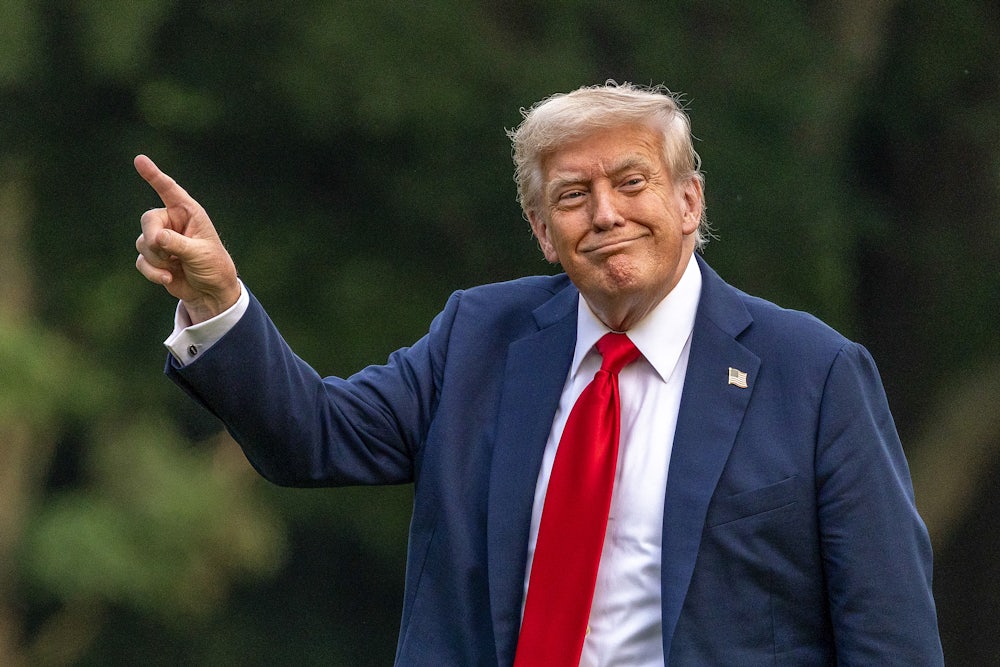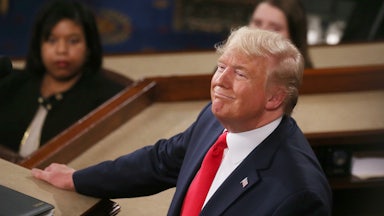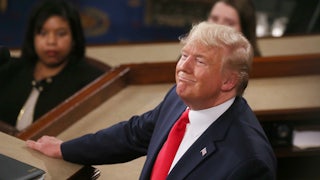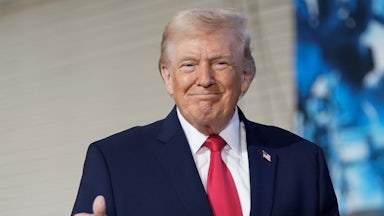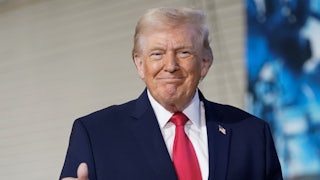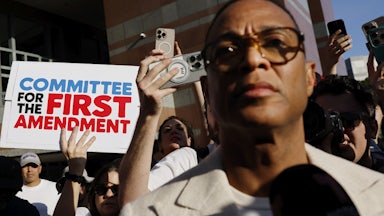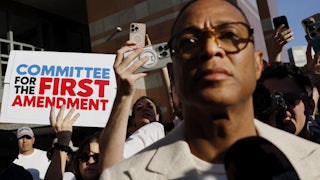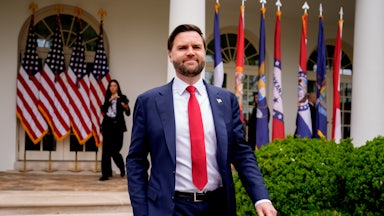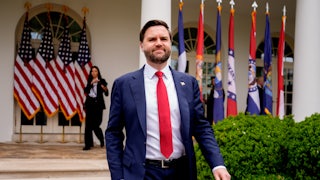Half a century after President Richard Nixon’s resignation in disgrace, certain clichés about political scandal linger in our discourse even though they don’t apply to Donald Trump. Among these, the reigning champ is “The cover-up is worse than the crime.” (I will henceforth identify this as CUWTC.) The Epstein scandal is reviving CUWTC, but I don’t think it has legs, because it isn’t true. Indeed, it wasn’t true even in Watergate.
The reason Washington embraced CUWTC during Watergate was that the perpetrator of the crime (i.e., the break-in at Democratic National Committee headquarters in the Watergate complex) was never identified. I feel pretty sure that Nixon ordered the break-in, but nobody ever proved it. What was proved was that Nixon covered it up.
Cover-ups are much easier to expose than underlying crimes. That’s true both for prosecutors (who can always nail the perp for conspiracy or perjury) and for political journalists (who specialize in identifying inconsistencies in public statements). But logically, you wouldn’t cover up something like, say, ordering a break-in at the DNC, if it weren’t pretty bad. Its badness is the reason you cover it up.
Trump and CUWTC are an awkward fit because to cover something up you have to understand that you’re doing something wrong, and Trump’s moral compass is out of order. On January 6, 2021, Trump openly encouraged protesters to disrupt the official ballot count (“We will stop the steal” … “We’re not going to let it happen” … “We’re going to walk down, and I’ll be there with you”), and during the subsequent insurrection, Trump waited three hours before he urged his supporters to leave the Capitol. Everyone knows this. Trump was impeached over it, and in the Senate a 57-person majority, including seven Republicans, voted to convict; Trump was acquitted only because conviction required 67 votes.
Similarly, Trump openly defied attempts by the National Archives to reclaim documents from his first presidency that did not belong to him, many of them classified. He also openly sought to overturn the 2020 election based on false information. He was indicted for these crimes, not for any attempt to hide them, and the cases were dropped or delayed indefinitely only after he won reelection.
Trump lost a civil suit brought by E. Jean Carroll after Trump denied sexually abusing her. The sexual abuse got Carroll a $5 million award, and the defamatory denial got her $83 million. Nevertheless, I think we can all agree that committing sexual abuse is worse than telling a lie to cover it up. Another civil judgment against Trump, on which Trump owes in excess of $500 million, involved civil fraud in his business dealings, but in that instance the cover-up and the crime were the same.
The exception that proves the rule is Trump’s criminal conviction on 34 felony counts of falsifying business records concerning his hush-money payment to the porn actress Stormy Daniels. That was, I must admit, a classic example of CUWTC. Falsifying business records is worse (from a legal standpoint, anyway) than cheating on your wife, which isn’t a crime at all. And a hush-money payoff one month before a federal election that isn’t recorded as a campaign expenditure violates federal law—just ask Michael Cohen—though the feds never indicted Trump for that. So yes, in this instance the cover-up was worse than the alleged tawdry behavior it was meant to hide—so much worse that it made Trump a felon. On January 10, the judge in the case issued Trump an “unconditional discharge,” meaning the felony conviction sticks but the felon pays no fine and does no jail time. Now Trump is a president and a felon.
But as cover-ups go, even this one was pretty amateurish, and during the trial, very few of the damning facts were in dispute. Also, Trump didn’t succeed entirely in hiding his alleged affairs—The Wall Street Journal reported on one with the Playboy model Karen McDougal four days before Election Day, in a story that also mentioned Daniels. Trump denied he had affairs with either woman, but even his supporters didn’t believe him; in a 2018 poll, twice as many Trump voters said he had an affair with Daniels (29 percent) as said he didn’t (15 percent), with the rest declining to say (56 percent). They didn’t care: A 64 percent majority of Trump voters said the matter didn’t change their opinion of Trump one way or the other. Even Democrats didn’t care all that much. Indeed, almost one-third of all Hillary Clinton voters agreed that it didn’t change their (very low) opinion of Trump.
The Epstein affair would appear, superficially, to be CUWTC-coded. After all, Trump stands accused by his MAGA base of not releasing documents in the Jeffrey Epstein case, as he once promised to do. And Senator Dick Durbin, Democrat of Illinois, says that in March the Justice Department put 1,000 employees on 24-hour shifts to review 100,000 Epstein-related documents and “these personnel were instructed to ‘flag’ any records in which President Trump was mentioned.” If true, that’s a serious abuse of power.
But MAGA doesn’t quite grasp, even though it’s staring the rest of us in the face, that the reason to care about Trump’s reluctance to release information about Epstein is the possibility that Trump had sex with an underage girl. If Trump is indeed a pedophile, then that will be far worse than his failure to release evidence that might or might not (I’m guessing not) incriminate him.
I have no opinion about whether our president is a pedophile. But I do have an opinion about whether we’re likely ever to find out. My opinion is: We won’t. A few days before the 2016 election, I showed up at a law office in Woodland Hills, California, to hear one “Jane Doe” who claimed that Trump tied her to a bed and raped her when she was 13. But at the appointed hour, Jane Doe failed to show up. Conchita Sarnoff, a reporter-activist who reported extensively on the Epstein matter years before the Miami Herald’s Julie Brown took it up, says Trump is a dead end in this case, and I’m inclined to believe her.
Which doesn’t mean Trump isn’t covering something up. The Wall Street Journal reported on a cryptic note that Trump penned to Epstein with a lewd drawing of a woman’s breasts and his signature doubling as a squiggle of pubic hair. Trump’s response was to say on Truth Social, “I don’t draw pictures,” prompting multiple news outlets instantly to dig up old Trump doodles. Trump then filed a $10 billion civil complaint against the Journal so idiotic that at least some of it (for example: “The Article was published in The Wall Street Journal as an exclusive. However, since publication Defendants have widely disseminated it to hundreds of millions of people worldwide”) must have been dictated by Trump himself. Here, this cover-up isn’t worse than the crime; it’s comic relief.
Miraculously, as the loathed mainstream media takes up the story, the MAGA faithful who rebelled against Trump suppressing the Epstein files are starting to rally around Trump. “They tried to actually destroy him,” one outraged MAGA podcaster told Steve Bannon. That the press jumped on the story because MAGA was in an uproar is immaterial. That Trump is obviously lying about a doodle to Epstein that’s far less incriminating than “Grab ’em by the pussy” is also immaterial. What matters—what has always mattered—is that Trump is once again under attack from the cultural elite.
Trump’s undeniable crimes, meanwhile, hide in plain sight. Last week, Bloomberg reported that a new batch of meme coins to be unlocked this week will add $100 million to Trump’s net worth. Pretty good story, no? Almost nobody picked it up. Yet another violation of the emoluments clause? Yawn. Who can keep track? And anyway, how can it be a crime if Trump isn’t covering it up? Time to retire that antiquated presumption. CUWTC, RIP.
